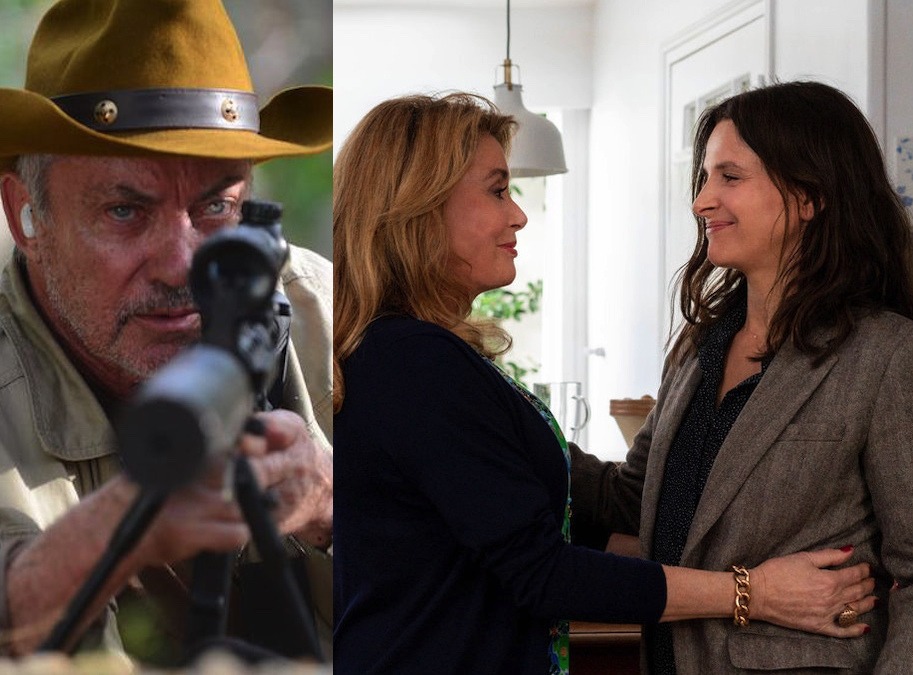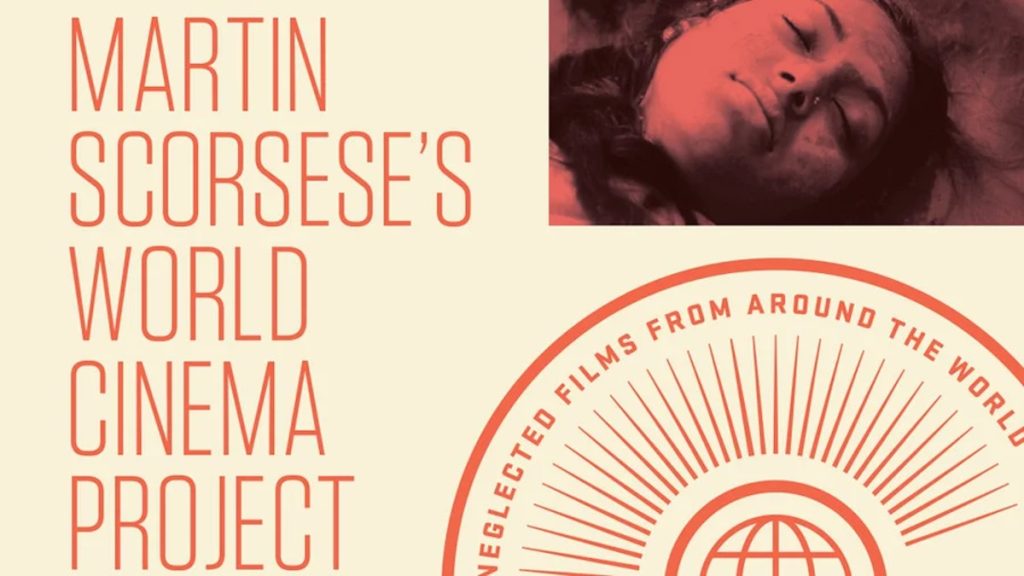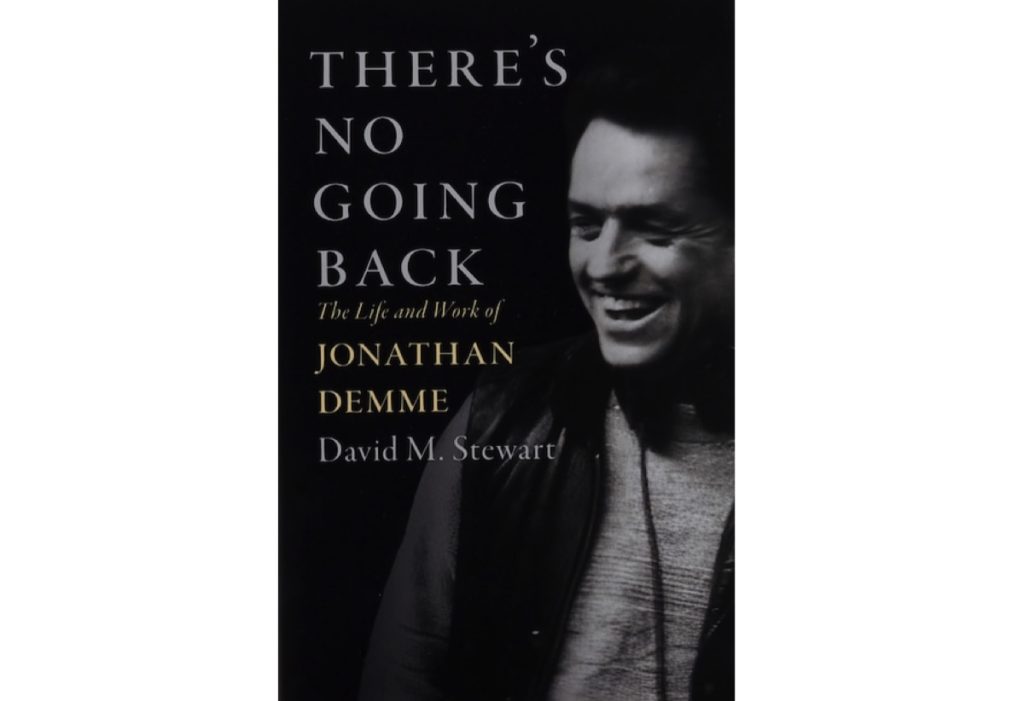The sheer volume of independent movies is certainly a net good for the cinematic landscape, offering up more stories, more voices, and more choices. But there are so many, available via so many venues, that it can get to be a little overwhelming. And thus, we present this monthly feature, in which your humble editor-in-chief offers up a handful of noteworthy indies, in handy, capsule-review form. Release dates are for initial, limited release; if you’re not in one of those mystical “select cities,” keep an eye out in the following weeks.
OUT NOW
Burden
First-time writer/director Andrew Heckler helms this true story of a South Carolina Klansman (Garrett Hedlund) who, in 1996, renounced that life – and suffered the consequences. Such a story tests the limits of sympathy and redeemability (Forest Whitaker is on hand to function as a more conventional, if still complicated, hero), but its best scenes detail the lengths to which the woman he falls for (Andrea Riseborough, excellent) challenges his beliefs and draws lines between his life and her love. The score is pushy and there’s a bit of padding, and the messaging is far from subtle. Then again, in matters of race, subtlety doesn’t seem to move the needle much these days.
Saint Frances
Few things on this earth are more tense than taking care of children, as a parent or a caretaker, and this modest comedy/drama has moments that filled this parent with as much anxiety as a Hitchcock thriller: the moment of dread when a baby wakes in the next room, the panic when realizing you looked away for just a second and now a child is gone, the way a kid of a certain age knows exactly how to push your buttons. Kelly O’Sullivan stars as the novice nanny who’s figuring all this out, and much more besides; she also wrote the keenly observed screenplay, which director Alex Thompson stages with authenticity and candor.
Straight Up
He’s in the midst of a “severe sexual identity crisis” – everyone’s always thought he’s gay, and he did too, but what if he isn’t? She’s a brutally funny and sometimes abrasive actress who uses her barbs to keep everyone at arm’s length, mostly due to a trauma she doesn’t talk about. They meet, and the sparks fly, and maybe you won’t believe me if I tell you it’s not only a comedy, but one of the funniest of the year. But it is – while also dealing with the issues at its center (story points that would be fodder for broad comedy in a lesser movie), with weight, sensitivity, and honesty. And then it’s very funny. And then it breaks your heart. Writer/director/co-star James Sweeney is a real talent, wielding stylish visuals and rat-tat-tat dialogue with equal aplomb, and his co-star Katie Findlay is a movie star, end of story. Seek it out; it’s wonderful.
MARCH 6
First Cow
Kelly Reichardt directs, co-writes, and edits this spiritual sequel to Meek’s Cutoff, returning not only to its approximate setting (our expansion west in the 1800s), but its themes; there’s something refreshing and inspiring about the way this female director frames these grizzled, primitive men glowering and growling at each other, then scrapping messily at the drop of a hat. But her camera stays behind when the bar fight rolls out into the street; her concern is with Cookie (John Magaro) and King-Lu (Orion Lee), two men trying to use their wits (and a bit of moral flexibility) to make their fortune. As ever, her storytelling is deliberate and methodical – you really do have to reset your heart rate in the opening sequences. But this is a riveting, compelling work of offhand beauty and psychological complexity.
Bacurau
“WHERE ARE WE GOING WITH THIS, FOLKS,” I scrawled into my notes, about two-thirds of the way into Juliano Dornelles and Kleber Mendonça Filho’s cuckoo-bananas Cannes Grand Jury Prize winner, and that question is not posed critically – so many movies march down their prescribed roads with such unwavering gloom, it’s absolutely thrilling to encounter a movie as indescribable as this one. The directors mix lived-in neorealism with wild flights of surrealism and absurdity to tell the story of a tiny Brazilian village – literally off the map – that’s targeted by a well-armed group of foreign invaders. What’s their aim? What’s their game? Will the villagers fight back? (They will fight back). Dornelles and Filho are masters of mood and anticipation, setting up unsettling situations and slow-boil conflicts, and paying them off with brio. These are master filmmakers, and this is a truly wild piece of work.
Only
“The ash” came the same day as Covino’s Comet, falling from the sky alongside an alarming number of dead birds, and that wasn’t all – as soon as it started falling, women who came in contact with it began dropping dead. It sounds an awful lot like Children of Men, and Only certainly has that flavor, but writer/director Takashi Doscher frames it as a relationship drama, imagining what would happen to happy couple Eva (Freida Pinto) and Will (Leslie Odom Jr.) if the demands of safety and intense quarantining meant she would have to never leave their apartment, resulting in sort of a post-dystopian Rapunzel story. The trick structure doesn’t quite hold up, and Doscher’s script sounds some false notes. But there are moments of real power here, as relationships are tested, hope drains away, and Eva must ultimately decide how much of a shadow of her life is worth still living.
MARCH 13
Never Rarely Sometimes Always
Eliza Hittman’s first two films, It Felt Like Love and Beach Rats, never left their Brooklyn neighborhoods; her latest ventures into Manhattan for the first time, but does so through the eyes of a small-town visitor, and one of Hittman’s gifts is how adroitly she captures the way the city can just overwhelm you. Her protagonist is Autumn (Sidney Flanigan, in a stunning debut), coming in on the Greyhound with her cousin Skylar (Talia Ryder, also very good) – but they’re not tourists. They’re there so Autumn can get an abortion, and the clarity with which Hittman approaches this process, and its many complications, is eye-opening. But it’s also not a polemic; this is an up-close character study, never reaching for its effects, and knocking the viewer out all the same.
MARCH 20
The Truth
Hirokazu Kore-eda (Shoplifters) directs this slyly funny and emotionally insightful story of a legendary French actress (played by, whaddaya know, legendary French actress Catherine Deneuve) and her strained relationship with her daughter (Juliette Binoche). There’s a fair amount of winking at the film business (of the work of a hot, young director, Deneuve asks, “Does a camera stand cost that much?”), but it’s not an inside showbiz movie – it’s about the notions we have of ourselves, and how our family’s ability to puncture them can make them both valuable and infuriating. Deneuve is Deneuve (which is to say, magnificent), but the movie really belongs to Binoche, always so warm and present; there’s a scene where her husband (Ethan Hawke) and their daughter are joking around, and you just end up watching Binoche watch them. That, friends, is great screen acting.
The Conversation (re-release)
It’s not exactly a little-known bit of trivia that Francis Ford Coppola wrote and directed this straight-up masterpiece between the straight-up masterpieces Godfather and Godfather II. But folks, he actually did that! Remixing Blow-Up as a post-Watergate paranoiac thriller, Coppola landed one of Gene Hackman’s finest performances (no small praise), grabbed yet another brilliant turn from John Cazale, and made a picture that’s both eerily quiet and a howl of pain and loneliness. If you’ve never had a chance to see it on a big screen, run, don’t walk.
MARCH 27
The Ghost of Peter Sellers
In 1972, Peter Sellers recruited director Peter Medak (The Ruling Class) to direct a 17th century pirate farce, shooting on the isle of Cyprus, from a script co-written by his old Goon Squad mate Spike Milligan. The resulting film, Ghost in the Noonday Sun, was “cursed from day one” – when the expensive pirate ship on which it was shot sailed into the island and promptly crashed right into the rocks, an apt metaphor if there ever was one. Now, decades later, Medak directs this documentary recounting the making of the doomed picture (which never even saw a theatrical release), and he has some good tales to tell, of how (like Jaws and Waterworld after it) shooting at sea means you’re at the mercy of the elements, as days were lost and scenes were cut or rewritten on the fly. But the film was mostly done in by Sellers, who checked out early, and spent the bulk of the 67-day shoot trying to sabotage it. Medak gathers witnesses to the events, as well as other directors and actors with their own Sellers war stories, and while the film might have benefited from a bit more distance (how reliable is our narrator?), it’s a fascinating, first-hand account of a true cinematic disaster.
Rewind
Sasha Newlinger’s father was late to the hospital on his day of birth; he was buying a video camera. That camera became the key to Sasha’s young life, capturing happy occasions, everyday events, and family gatherings – and now, as a survivor, they seem to hold a key that will help him understand his trauma. Newlinger directs this tough, troubling documentary, which deals in sexual abuse, survivor’s remorse, parental guilt, and more; frankly, consider this a trigger warning. But if you can withstand its horrors, this is a moving and powerful portrait, telling a story that dips into unimaginable darkness before revealing the light of relief on the other side.



